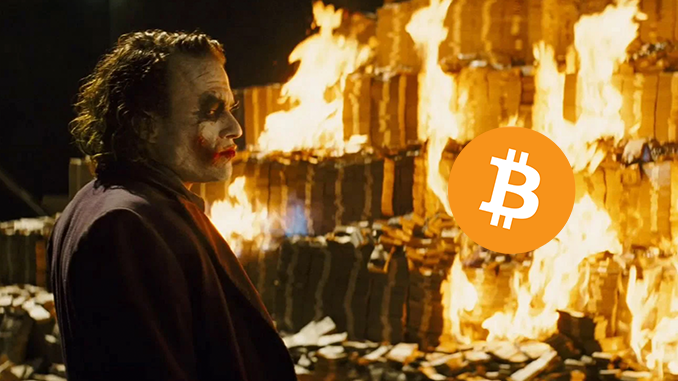
Bitcoin (BTC) is often preferred by investors over other asset classes with the argument “inflation protection”. But does the “digital gold” still justify this attribute at the end of 2022?
Bitcoin (BTC) has become a widely respected asset class since at least mid-2020. When the emergence of the Corona virus prompted governments around the world to prop up domestic economies with huge aid packages, experts already suspected: the politically intended inflation of money supply in the leading fiat currencies will sooner or later lead to inflation. Bitcoin, with a BTC cap set at 21 million, recommended itself as an inflation hedge in this environment. Large investors such as MicroStrategy justified shifting cash reserves into Bitcoin as protection against inflation. Those who bought BTC before December 2020 paid less than $18,000 per Bitcoin and are still in the black on their investment now.
But the large influx of capital to Bitcoin has stalled, currently BTC is trading at just over 19,000 US dollars and the all-time highs of over 60,000 US dollars from 2021 are history (for now). At the same time, however, the inflation rate for fiat currencies from the U.S. dollar to the euro is reaching record levels, and the inflation in energy prices due to Russia’s war against Ukraine is doing the rest. So why does the theory that Bitcoin’s very concept protects against inflation no longer work? Experts cite various factors that exert influence:
1. the U.S. dollar once again proves itself to be the global reserve currency in times of crisis. The euro, yen and pound have lost value against the US dollar since the beginning of the year, in some cases by double-digit percentages. The U.S. dollar is gaining the confidence of investors and savers due to the powerful military and the willingness of the U.S. to hedge its currency at all costs. Bitcoin can currently only claim such supremacy for the crypto market at best, but even there, investments in BTC in fiat currencies other than the US dollar have become riskier due to devaluations.
2 During the Corona crisis, aid money was distributed, which was only needed to a limited extent in many households and thus partly flowed in the direction of Bitcoin as an investment. But the current inflation hits the average citizen directly and even new aid money is virtually reserved for hedging living costs. No quick investment impulse for BTC is to be expected here.
3. Real estate, gold and government bonds are considered classic asset classes for inflation protection. Outside the crypto scene, Bitcoin is still an exotic. The gold price is showing relative stability, government bonds are now becoming more interesting again due to interest rate hikes at central banks, and the real estate market is holding its own.
4. If one looks at Bitcoin from the perspective of inflation protection, the period from 2020 is to be taken because only then did the market capitalization make BTC a sufficiently liquid asset class. But two or three years is far too short a period to test the inflation protection thesis. Here, strategies should be developed over a wait of a decade or longer and, accordingly, Bitcoin is currently in an intermediate phase. The value of BTC as a protection against inflation will only fully unfold in the medium term, according to many Bitcoin proponents.
5. 2022 is generally a bad year for Bitcoin and Co. because the collapse of the ecosystem around Terra (LUNA) set off chain reactions for the crypto industry. Hacks, the influence of regulators, the discussion about the energy consumption of BTC – all these are further details that do not do Bitcoin’s image any good.
On the other hand, our market report from the end of 2021 also showed that large investors remain committed to crypto and tend to make repeat purchases. In this context, Ethereum (ETH) is increasingly being considered because the second largest global cryptocurrency is expected to increase in price more than Bitcoin through further development (keyword: “The Merge”).
Conclusion: global inflation – what can be expected from Bitcoin?
The psychology of the markets currently speaks only conditionally for Bitcoin as a protection against inflation – but it is probably too early to judge conclusively. The stock market value of MicroStrategy, for example, has risen since the decision was made there to promote BTC as a protection against inflation, and in October 2022 it is still about double what it was before the investments started in the summer of 2020. While recession is looming not only in Europe, optimists are already looking to the future with the expectation that the global economy will stabilize and inflation can be contained: Then the way should be clear again for Bitcoin to achieve sustainable price increases.

Leave a Reply